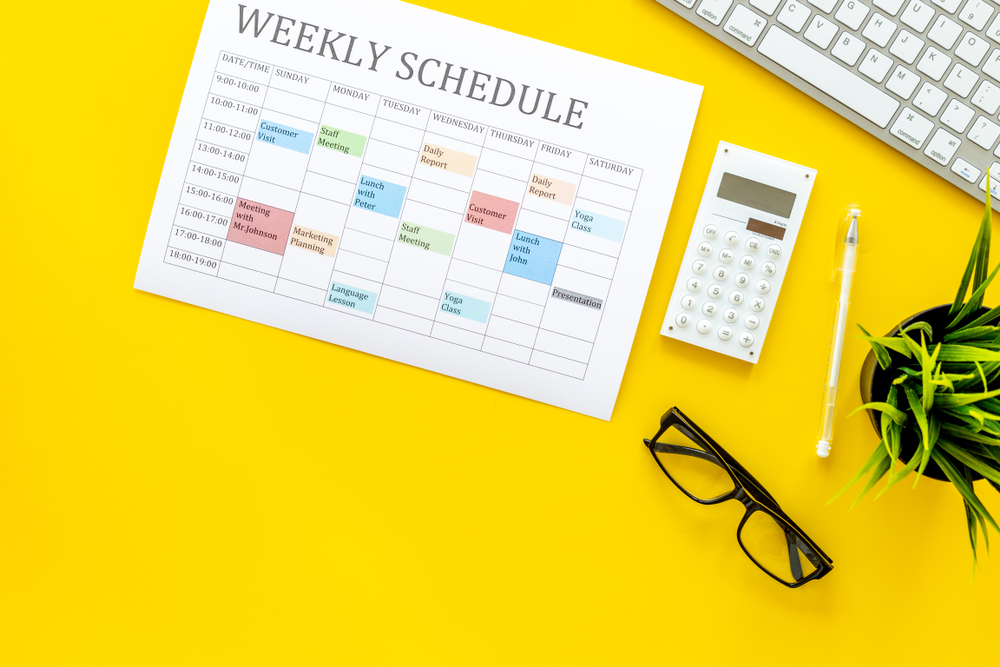The modern worker juggles more in a day than ever before. There are dozens of different things you wish you could do with your time.
Most people lose time at work to unplanned (and sometimes unnecessary) meetings, long conversations, work notifications and emails.
We all have the same amount of time, and it’s finite and in great demand.
But our daily outputs are different because of priorities and what we choose to do with our time.
Some of us make time for our most important tasks despite the constant demands, pressures and responsibilities of life.
Are you making the most of your time today?
Everything you put off till tomorrow reduces your daily productive time.
Rethink your daily routine
Find and eliminate everything that’s wasting your precious time.
Start tracking how you are using your time to get a really clear “to the minute” idea of where your time is spent.
According to an Adobe report, the average worker spends about six hours a day on email.
That doesn’t count other online distractions.
The number of distractions and interruptions that want your attention in real-time can be overwhelming.
If you are spending most of your time on everything that does not get you closer to your work goals, your time for productive work tomorrow will be stretched.
With so many tasks and distractions pulling you in so many directions, it can take time to focus on the important tasks that need your maximum attention.
Remove all distractions, on your desk and on your computer. If you’ve got a clean, simplified workspace, you can better focus on the tasks.
How do you work?
Do you know when you are most productive?
I work better between 8 am and 12 pm.
I find that mornings are the absolute best times to tackle my top priorities.
I do all my best work when I am most active and have the most energy.
I make the most of my energy instead of managing my time.
Everything that requires 100% concentration should be done when your energy is at its peak.
By understanding how you work, you can tailor your day around those key moments to get more done in half the time.
Make the most of your natural concentration spurts.
Or better still, develop a set of systems and processes that maximises your energy.
What task can you do that will get you the most return on your time?
Think of time as a resource you invest to create value
Put a real value on your time, and yourself whether it was “worth” that value for you to do XYZ that took you even 30 minutes.
Optimising how you work will save time, resources and make even more time for you tomorrow.
Choosing to do less is one of my favourite productivity tips.
Simplifying your schedule by doing fewer (but important ) things has consistently proven to be a better approach to getting work done.
This puts your limited time to good use, whilst making more time for your next tasks.
Decide which tasks can wait.
Automate tasks, commitments, and obligations you can’t eliminate.
Automating redundant activities (such as emails, filling forms, social media, presentations, meeting notes, scheduling appointments, etc.) can free up valuable time.
If you can’t automate, see if you can outsource.
I’ve outsourced many things in the past, from small tasks to entire projects. That allows me to focus on the things I’m best at and saves me a lot of time.
If you can shift away 2 hours per day, you will gain 1 day per week.
The best way to make this work for you is to keep a great calendar.
Everything should go on your calendar.
This prevents over-scheduling.
Limit your working hours
Rethink your deadlines.
“Work expands so as to fill the time available for its completion,” according to Cyril Northcote Parkinson, who gave us Parkinson’s Law.
If you work more than 8 hours a day, limit yourself to 6 hours a day and try to complete your tasks within that time.
If you make yourself accountable, you’ll push yourself to deliver on time.
By setting limits, you will force yourself to focus on getting your most important tasks done.
If you try this, you’ll prioritise, work more efficiently, and waste less time in the process.
You’ll also free up a good chunk of your day to be, well, tuned in to other things, and prepare better for tomorrow.
Can I say no to this task?
Most people spend a greater percentage of their time responding to requests and doing what other’s expect of them.
They are reactive instead of being proactive their time.
If you receive numerous requests each day, you have to learn how to turn most of them down whilst you focus on your priorities.
Saying yes to one thing means saying no to yourself.
If you say “yes” to every request, you will never have the time you need for your best work.
Get super protective of your time.
Many people find it uncomfortable to say no because they don’t want to disappoint others.
But learn to tell people that you just don’t have the time to commit to this right now, and often they’ll understand.
Say yes to the right kind of things.
Protect your time and manage your time like an investment portfolio.
Originally Published on Medium.
Follow us here and subscribe here for all the latest news on how you can keep Thriving.
Stay up to date or catch-up on all our podcasts with Arianna Huffington here.


